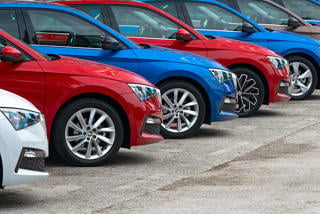The green credentials of plug-in hybrid electric vehicles (PHEVs) have been dismissed in a critical report of the Government’s climate plans.
The Climate Change Committee (CCC) says that Plug-in hybrids had proved far less fuel-efficient than had previously been thought.
The carbon savings were three to five times less than previously believed, the new data in the Government’s Carbon Budget Delivery Plan (CBDP) had found.
This means that the carbon savings accrued from the adoption of PHEVs are substantially smaller – by around 9 MtCO2e/year – than in the Net Zero Strategy analysis.
The CCC says it is “positive” that this evidence has been incorporated into the modelling, and it emphasises the “importance of prioritising battery-electric vehicles (BEV) over less efficient and less cost-effective PHEVs”.
It added: “The Government should use this evidence to justify either permitting only BEV sales or setting a very ambitious definition of ‘significant zero-emission capability’ when deciding what vehicles will be.”
In banning the sale of new petrol and diesel cars and vans from 2030, the Government has said that it will allow the sale of hybrid cars and vans that can drive a “significant distance” with no carbon coming out of the tailpipe until 2035.
Chris Stark, chief executive of the CCC, said : “What we’re seeing with plug-in hybrids is essentially a continuation of the use of fossil fuels. So we need to move away from using fossil fuels at all in cars and vans to straightforward battery electric vehicles.”
Delivering the 2030 phase-out of new conventional car and van sales is vital to meeting the UK’s decarbonisation pathway, says the CCC.
The final consultation on the zero-emission vehicle (ZEV) mandate, which will require manufacturers to sell a rising proportion of ZEVs on the way to this, was published in March.
This, it says, is an important policy which will ensure that electric vehicle (EV) sales scale up at the rate required, and the Government should focus on finalising its implementation and addressing the key enablers which will allow it to succeed.
It continued: “Although the inclusion of various flexibilities for manufacturers will likely slightly weaken its practical impact, the ZEV mandate remains a credible delivery mechanism.
“The Government must now work at pace to ensure that it is implemented from 2024 as planned.”
It also believes that there is an opportunity to build on this progress to develop regulations and enabling policies to drive forward the market for zero-emission heavy goods vehicles (HGVs).
The Government and industry have identified this as an area where there could be both emissions and economic benefits from the UK being a global first-mover.
However, the CCC said: “Swift action is vital to realise these.”
On the EV charging network, it acknowledged that the UK’s EV charging network has expanded by almost one-third over the past year, although it said that “provision remains inconsistent across the country and there are concerns around reliability and cost”.
It added: “The rate of charge point deployment will need to more than double in the coming year and beyond to ensure charging provision keeps pace with EV uptake.
“This is vital – if progress is insufficient, delayed or patchy, or if cost and reliability issues present barriers to use, it could undermine public confidence in the suitability of EVs and pose a serious risk to the achievement of the 2030 phase-out of new petrol and diesel vehicles.”
The Government’s initial proposal for remaining sales of conventional and hybrid cars and vans to be subject to only flat emissions regulations, risks missing an opportunity to incentivise manufacturers to reduce the size and weight of vehicles, it argues.
“Reducing vehicle sizes and weights could also be beneficial for EVs, where larger vehicles have higher embedded emissions and consume more electricity,” it said.
The committee also noted that the Government has made no progress on its recommendations on clarifying the role for car demand reduction and ensuring that key enablers (road-building decisions and taxation) are aligned to delivering this.
“While there have been some positive signs through the distribution of capability funding by Active Travel England, the introduction of the temporary £2 bus fare cap and the implementation of low-traffic neighbourhoods and low-emission zones by local authorities, these have been balanced by negative developments including delays to local transport plan guidance and cuts to the active travel budget,” it said.
To read the full report from the Climate Change Committee, click here.
























Login to comment
Comments
No comments have been made yet.